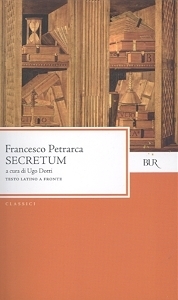What do you think?
Rate this book


Deeply troubled by his struggle‚Äîand failure‚Äîto achieve spiritual perfection, Petrarch, considered the forefather of Italian humanism, sought catharsis in the writing of a ‚Äúsecret book.‚Ä� Only here could he pour out his innermost thoughts, frustrations, and desires. Written in the form of a dialogue between himself and St. Augustine, the book wrestles with the universal themes of suffering, desire, fear, and joy. The result is a rare insight into Petrarch‚Äôs life and thought and a remarkable early example of self‚Äìrevelation and autobiography. Foreword by Germaine Greer.
Paperback
First published January 1, 1378
Who can find words to match the things that fill me with disgust wherever I go: stinking alleyways, foul pugs mingling with rabid dogs, the creaking of wheels that makes the walls shake, carts swerving through the winding streets; and such a variety of races, so many disgusting displays by beggars, so much wild cavorting buy the rich: the former struck in their misery, the latter drifting around in wanton pleasures; finally, such a profusion of conflicting views, such a variety of professions, such a muddled hubbub of voices, such a rich of people falling over each other. All of this wears down the senses that are used to better things, destroys the serenity of the noble mind and interrupts the pursuit of higher studies. So may God keep my ship safe from such a disaster, for when I look around me, I often seem to have descended alive into hell. Go on, then, do something good. Go on, then, devote yourself to some uplifting thoughts. 2.15.7
__________
In cases of conflict opinions may differ, but there is only one truth and it does not change. 3.2.6
So if you ask one of that crowd for a definition not only of man but of any other thing, he has his answer ready; but if you want to press him any further, he has nothing to say. Or if his incessant debating has provided him with a wealth of words and a degree of audacity, the speaker’s character will reveal that he has no true understanding of the matter he is defining. 10.2-3
The satirical poet is correct when he says that ‚Äúhe who speaks the truth will be a prosecutor (Juvenal Satires, 1.161), and so is the comic poet when he says: ‚Äúdeference makes for friends; truth makes for hatred.‚Ä� (Terence, Andria, 68) 2.5.3
__________
Fr. I’m sure that I have never sinned either as regards the object or the manner. Stop harassing me.
Aug. What then? Do you want to die laughing and joking, like certain lunatics? Or would you rather take something to cure your mind of its wretched sickness?
Fr. I won’t refuse a remedy if you can show me that I need it, but forcing cures on the healthy is often fatal.
Aug. it’s only when you start to get better that you’ll acknowledge, like so many others, how seriously ill you were. 3.2.9-2.10